Life Cycle
Eggs are oval with smooth exteriors. They are pale yellow to white and approximately 1.2 mm long and 0.4 mm wide. Eggs are laid in concealed locations, often between two leaves glued together. They hatch in 7–8 days, and larvae drop to the soil, where they feed on roots.
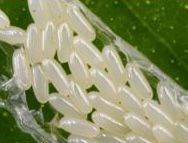
Credit: T. R. Weeks, UF/IFAS
Larva are cream-colored, lack true legs, and grow to approximately 2.5 cm (less than 1 inch). The larvae feed on roots in the soil feeding for several months to complete development before pupating and emerging as adults.
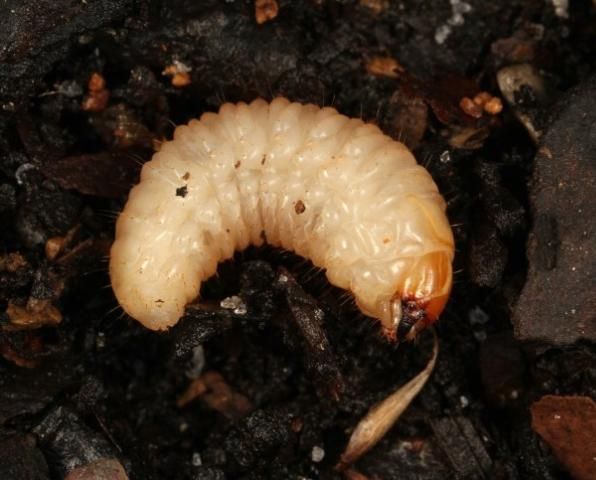
Credit: L. Buss, UF/IFAS
Adults range from 1–2 cm (less than 1 inch) in length. They are black with small red, orange, and/or yellow stripes on their wing covers (backs). Adult males live about one month while females live for 3–4 months, laying up to 5,000 eggs per lifetime.
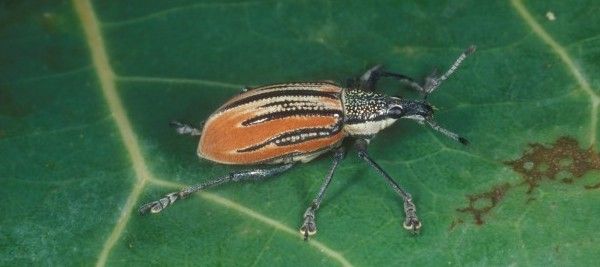
Credit: L. Buss, UF/IFAS
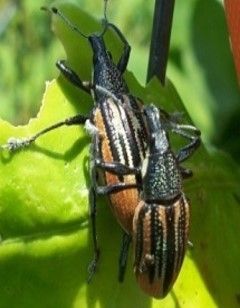
Credit: R. Stewart, UF/IFAS
Damage
Adult weevils can occasionally severely damage tree foliage by eating large portions of leaves; however, the damage to foliage is generally not economically important. The majority of damage is caused by larval feeding on roots. Larvae can girdle the taproot, preventing the plant from taking in nutrients and water, which eventually leads to the death of the tree. Larval feeding also opens wounds through which Phytophthora fungus may enter roots, leading to root rot.
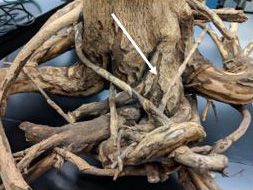
Credit: L. M. Diepenbrock, UF/IFAS
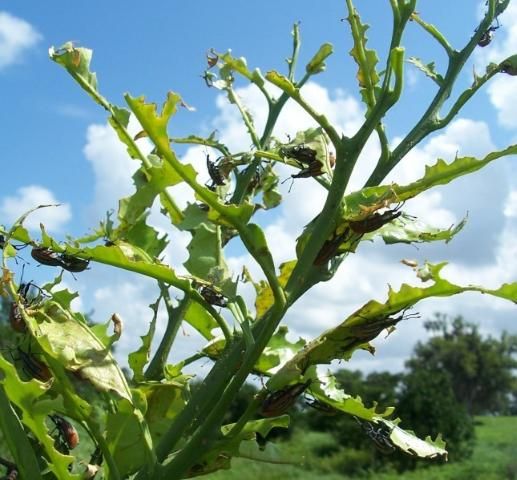
Credit: R. Stewart